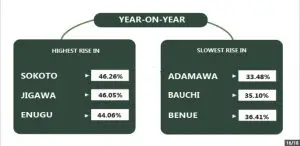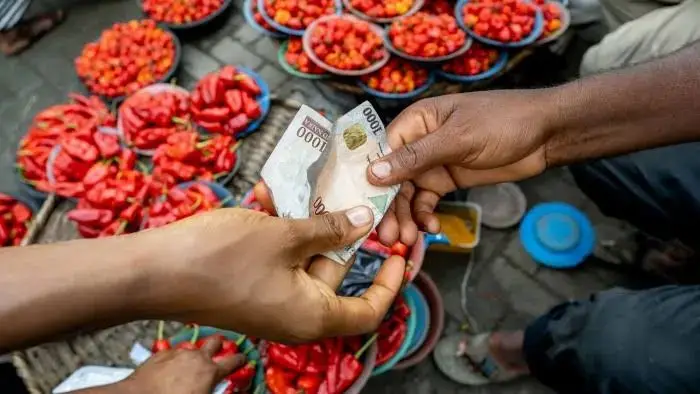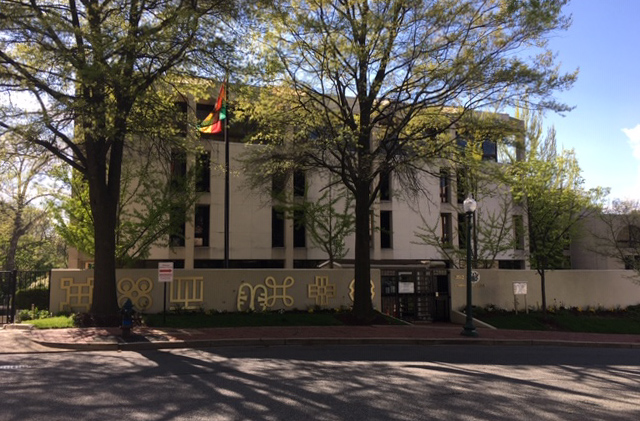
Nigeria’s headline inflation rate eased slightly to 33.40 per cent in July 2024, down from 34.19 per cent in June 2024. This is according to the latest report by the National Bureau of Statistics (NBS) on Thursday.
July’s rate represents a decrease of 0.8 percentage points monthly. However, compared to July 2023, when the rate was 24.08 per cent, the inflation rate has significantly increased by 9.32 percentage points.
On a month-to-month basis, the inflation rate slowed marginally to 2.28 per cent in July 2024, a slight drop from the 2.31 per cent recorded in June 2024. This indicates that while prices are still rising, the pace of the increase has slowed compared to the previous month.
Food Inflation Remains High
Food inflation continues to contribute significantly to the overall inflation rate in the country. In July 2024, food inflation reached 39.53 per cent on a year-on-year basis, marking a 12.55 percentage point increase from the 26.98 per cent recorded in July 2023.
According to the report, the rise in food inflation is primarily due to the increased prices of essential items such as Semovita, Yam Flour, Wheat Flour, Yam, Irish Potatoes, Palm Oil, and beverages like Milo and Bournvita.
However, on a month-on-month basis, food inflation decreased slightly to 2.47 per cent in July 2024, down from 2.55 per cent in June 2024. This reduction is attributed to slower price increases in items like milk, fish, garri, and other essential food products.

Core Inflation Slightly Rises
Core inflation, which excludes volatile items like food and energy, rose to 2.16 per cent in July 2024 monthly. This is up from 2.06 per cent in June 2024. The average twelve-month annual core inflation rate was 24.65 per cent, 5.81 percentage points higher than the 18.84 per cent recorded in July 2023.
Therefore, despite the slight ease in the overall inflation rate, the persistent rise in food and core inflation shows the ongoing economic challenges in Nigeria, particularly the pressure on household incomes and the rising cost of living.
Read More:
- Sudan Army Boycotts US-Led Peace Talks in Switzerland
- Plateau State Government Fully Lifts Curfew In Jos-Bukuru Metropolis
About The Author
Related Articles
Cotê D’Ivoire: Thousands Rally in Abidjan as Opposition Demands Electoral Reforms Ahead of October Election
Thousands of opposition supporters gathered in Abidjan on Saturday, May 31, to...
ByJoy ChukwuJune 1, 2025Togo Stops Issuing Mining Permits to Reform Outdated Mining Code
Togo has suspended the issuance of new mining permits for prospecting and...
ByJoy ChukwuJune 1, 2025ICYMI: Ghana Shuts Down Washington Embassy Over Visa Fraud Scandal
Ghana has temporarily closed its embassy in Washington, D.C., following the uncovering...
ByJoy ChukwuMay 31, 2025Confederation of Sahel States Moves to Establish Joint Judicial Body
The Confederation of Sahel States (CSS), comprising Mali, Niger, and Burkina Faso,...
ByJoy ChukwuMay 31, 2025












